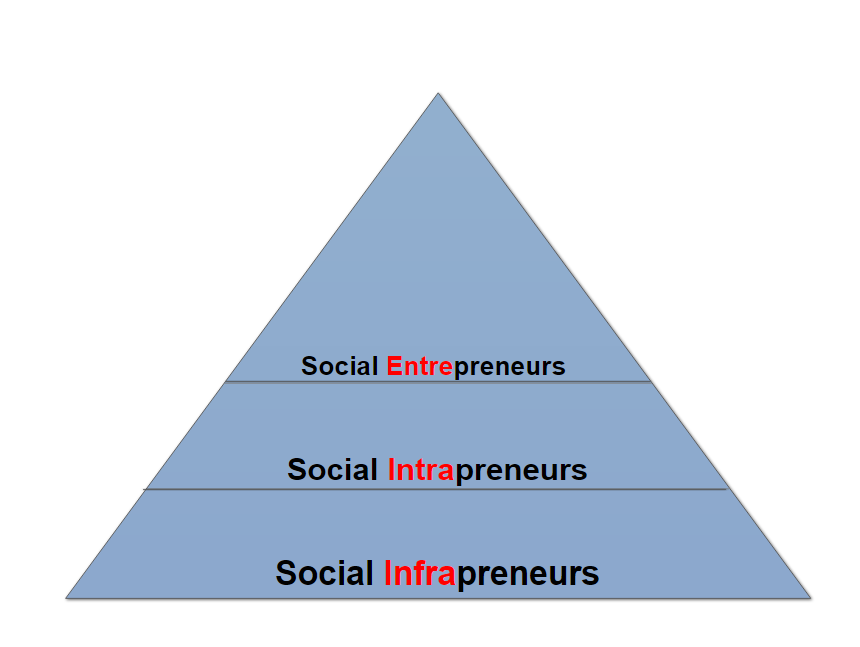Careers in social enterprise start with students making a commitment to tackle difficult and often intractable social issues. Concerns of our students range from education improvement to human rights, gender equity to financial inclusion, corporate social responsibility to international development, land-mine clearance to Mid-East peace, architecture to suicide prevention, and impact investing to effective activism. Some plan to work abroad, others focus on having an impact in the United States.
They address their concerns by using graduate study to prepare for one of three roles:
SOCIAL ENTREPRENEURS are the visible heros and role models of the field. They, like most entrepreneurs, build new ventures around creative ideas they have for addressing societal problems. Their accomplishments are written about in articles and books, and are often what first comes to mind when you think about social enterprise.
SOCIAL INTRAPRENEURS work inside existing organizations – businesses, NGOs and government agencies – to bring about change. They tend to operate under-the-radar and may feel like they are constantly swimming up stream. Just as passionate as social entrepreneurs about their causes, they may achieve even greater impact as they nudge large, well-resourced and influential organizations to change course, innovate and become more enterprising.
SOCIAL INFRAPRENEURS are building the superstructure for entre- and intrapreneurs to thrive in. They support social innovation by providing training, money, recognition, research, and advice. They conduct studies and write books. They invent new ways of financing social good, such as crowdfunding and venture philanthropy. They work in foundations, universities, and consulting firms, and places like Accion, Ashoka, B Lab, Echoing Green, Grameen, and the White House Office of Social Innovation.

